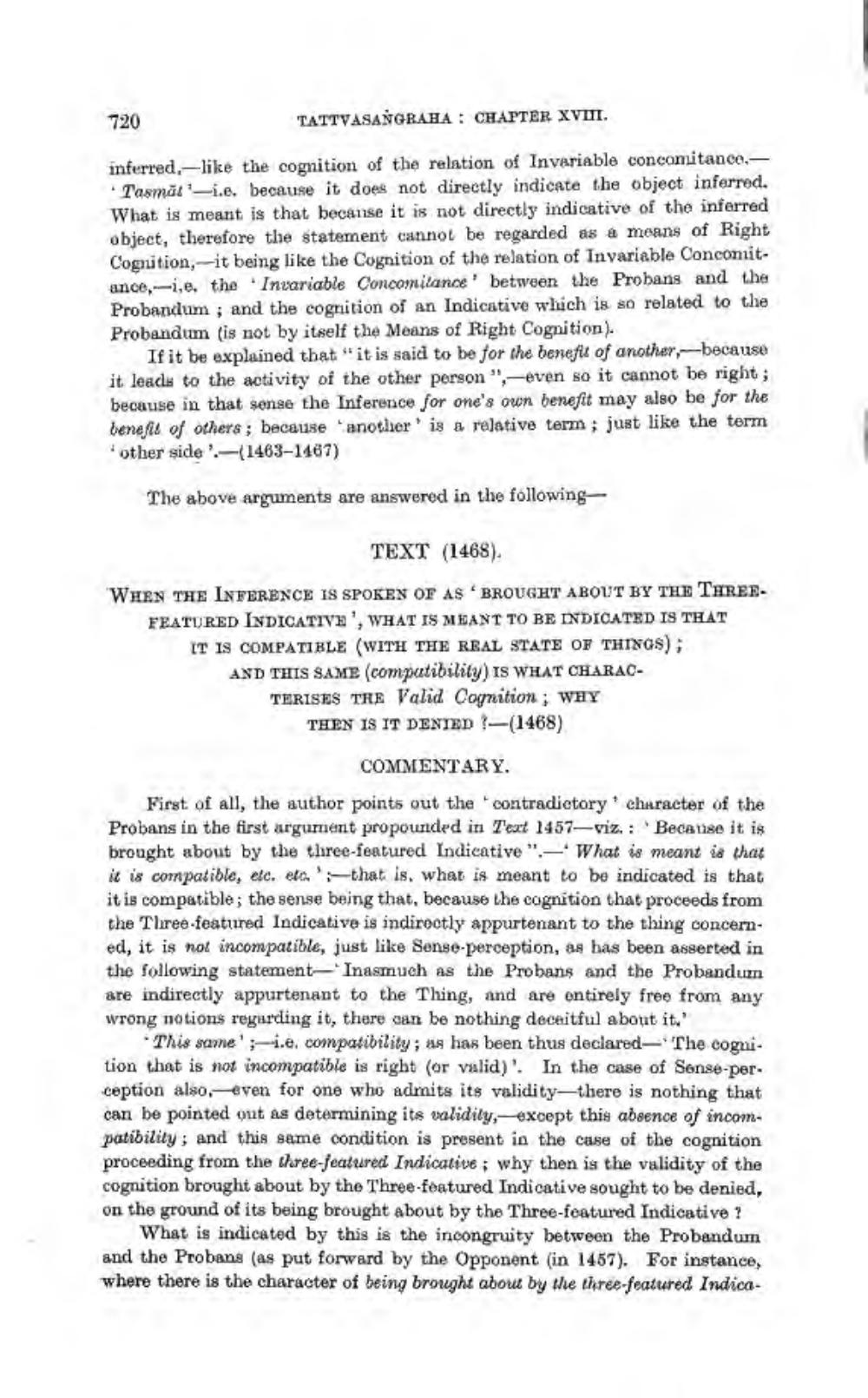________________
720
TATTVASANGRAHA
CHAPTER XVIII.
inferred.-like the cognition of the relation of Invariable concomitance,
Tasmàti.e. because it does not directly indicate the object inferred. What is meant is that becanse it is not directly indicative of the inferred object, therefore the statement cannot be regarded as a means of Right Cognition,-it being like the Cognition of the relation of Invariable Concomitance,--,e. the Invariable Concomitance between the Probans and the Probandum ; and the cognition of an Indicative which is so related to the Probandum (is not by itself the Means of Right Cognition).
If it be explained that it is said to be for the benefit of another because it leads to the activity of the other person ", -even so it cannot be right; because in that sense the Inference for one's own benefit may also be for the benefit of others; because "another is a relative term ; just like the term * other side':-(1463-1467)
The above arguments are answered in the following
TEXT (1468).
WHEN THE INFERENCE IS SPOKEN OF AS BROUGHT ABOUT BY THE THREEFEATURED INDICATIVH', WHAT IS MEANT TO BE INDICATED IS THAT IT IS COMPATIBLE (WITH THE REAL STATE OF THINGS); AND THIS SAME (compatibility) is WHAT CHARACTERISES THE Valid Cognition ; WHY
THEN IS IT DENIED 1-(1468)
COMMENTARY.
First of all, the author points out the contradictory character of the Probans in the first argument propounded in Text 1457-viz. : Because it is brought about by the three-featured Indicative ".- What is meant is that it is compatible, etc. etc':-that is what is meant to be indicated is that it is compatible; the sense being that, because the cognition that proceeds from the Tlıree featured Indicative is indirectly appurtenant to the thing concerned, it is not incompatible, just like Sense-perception, as has been asserted in the following statement-Inasmuch as the Probans and the Probandum are indirectly appurtenant to the Thing, and are entirely free from any wrong notions regarding it, there can be nothing deceitful about it.
This same':-i.e. compatibility; as has been thus declared- The cognition that is not incompatible is right (or valid)'. In the case of Sense-perception also, even for one who admits its validity—there is nothing that can be pointed out as determining its validity, except this absence of incompatibility; and this same condition is present in the case of the cognition proceeding from the three-featured Indicative; why then is the validity of the cognition brought about by the Three-featured Indicative sought to be denied, on the ground of its being brought about by the Three-featured Indicative ?
What is indicated by this is the incongruity between the Probandum and the Probans (as put forward by the Opponent (in 1457). For instance, where there is the character of being brought about by the three-featured Indica




